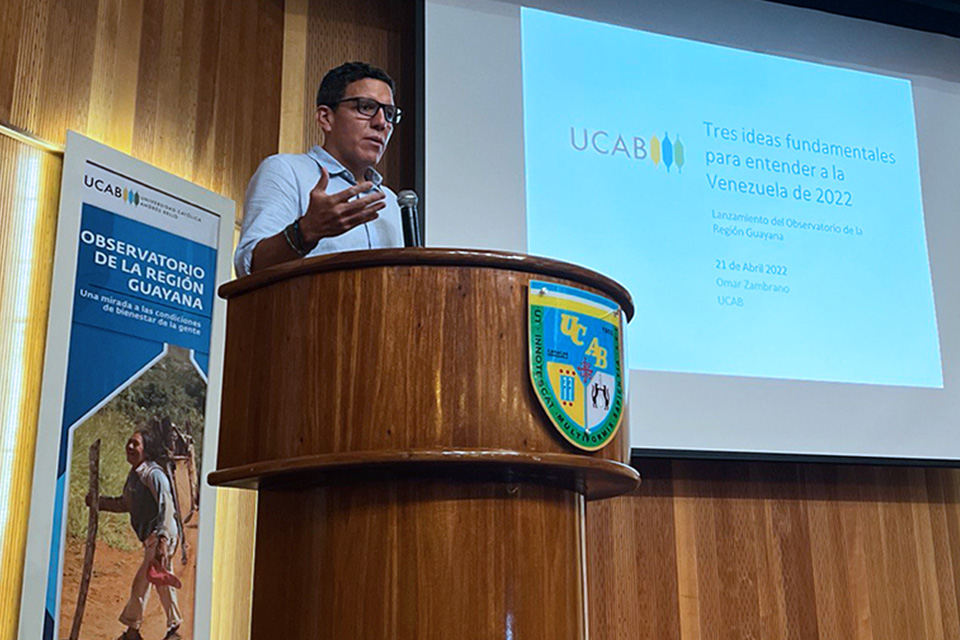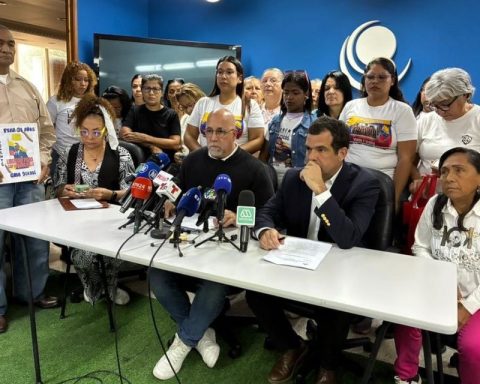The economist Omar Zambrano pointed out that in Venezuela, only 53.8% of people between 15 and 64 years old work and 8.8 million adults of productive age do not generate autonomous income
“Is Venezuela fixed or are we a dead cat?” This is a saying of economists when something falls from too high, even a dead cat bounces when it hits the ground. The simile describes that when the falls are as strong —like those that Venezuela is experiencing— the rebound effects look gigantic. However, “the reality is that when an economy falls 80%, it must grow 400% to barely reach the initial point where the fall began”, explains the economist Omar Zambrano.
Under the title “Three fundamental ideas to understand the Venezuela of 2022”, Omar Zambrano focused his speech during the presentation of the Observatory of the Guayana Region on the reality and economic prospects of the country, in light of the data and figures available on what what has been happening in recent months.
“The truth is that we can be a dead cat or not; there are elements that say no, since Venezuela shows recovery in some areas. Today we are in a scenario marked by transactional dollarization, free market for entrepreneurship, free trade for the importation of finished goods and greater availability of consumer goods. There are green shoots in some sectors, but inequality is the sign of the times,” said the representative of the research firm Anova Policy Research.
One year after what he calls the “non-productive recovery” of the country, the Andrés Bello Catholic University (UCAB) professor also explained that few people participate in the labor market. He pointed out that in Venezuela, only 53.8% of people between 15 and 64 years old work and 8.8 million adults of productive age do not generate autonomous income.
The economist Omar Zambrano explained that labor incomes have improved, but they are still very low. “On average, labor income in dollars continues to be precarious (110 dollars per month in Caracas) with great heterogeneity.” He added that remittances help, but not as is believed; According to preliminary figures, 18% of all Venezuelan families say that they receive remittances and that on average they are $84 per month.
The specialist said that the huge wage gaps are another example of the inequalities that prevail in the country. With data taken from Anova Policy Researchbased on the National Survey of Living Conditions (Encovi), mentioned that in the public sector, the average salary is $17.92, that of self-employed workers is $52.66 and in the private sector it is $55 .87. “In Venezuela, inequality has favored the rich”sentenced.
Zambrano specified that in Venezuela the vulnerability is 57%, that is, it affects 4.1 million households, while in the state of Bolívar it is 61%, equivalent to 222 thousand households. “There are even large intra-regional differences, such as in the municipalities of Caroní (53%) and Sucre (94%),” said the specialist.
Regarding economic policy and growth prospects, as well as regarding de facto dollarization versus formal dollarization, the expert made it clear that “stabilization based on the nominal exchange rate can limit the future of productive development.”
Omar Zambrano specified that it is not possible to grow without credit from the financial system, while warning that the migration and flight of qualified human capital will take its toll at some point; he insisted on the need to reactivate public services, although he asserted that recovering credibility, legal certainty and protection of property rights is a process that is going to cost and involves mutual learning.
*Read also Loan portfolio grew 29% in one year, but loans are conspicuous by their absence
Post Views:
959

















